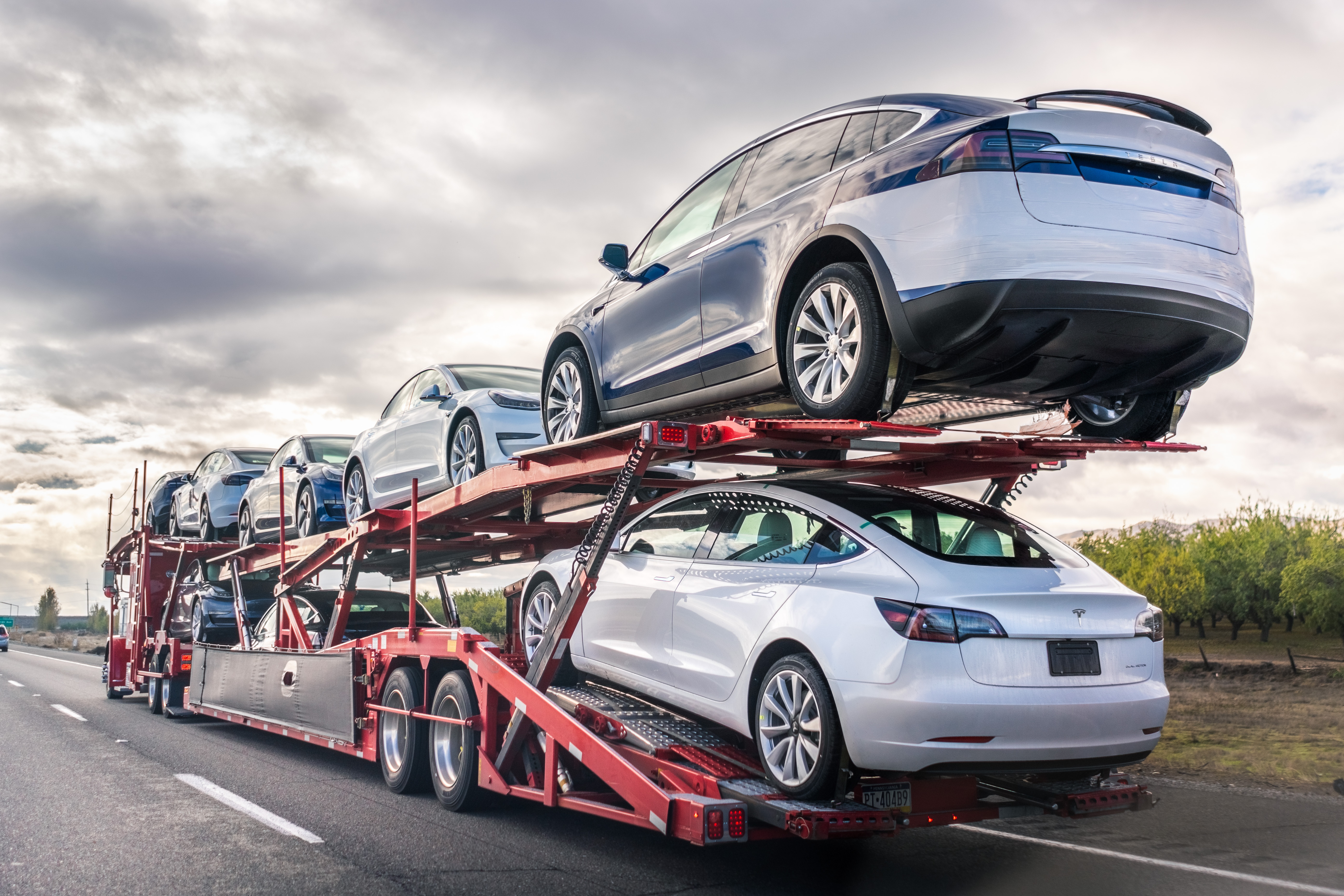When you imagine what the future looks like, what do you see?
People used to imagine something like The Jetsons, a future complete with flying cars, glistening skyscrapers, cleaning robots, and many other neat devices. Nowadays, people imagine technologies that even The Jetsons would be jealous of. Chief among them, autonomous cars.
Along with electric vehicles, autonomous or self-driving cars have made waves in recent times due to their potential to radically change the way we live our lives. Glimpses of the technology, provided by large well-known companies like Tesla and Google, capture our imaginations in a way that many technologies don't.
But after the novelty and excitement of these demonstrations wear off, the question which most people are left with is how this technology will actually impact their lives. What can they expect from a world dominated by autonomous vehicles?
We've taken it upon ourselves to answer this question. Below is an in-depth review of autonomous cars that describes their past, present, and future. Our goal is to identify the areas in society which might see the most changes as a result of autonomous vehicles, and describe what those changes may look like. Read on to find out more.
Autonomous Cars: The Story So Far
As a concept, autonomous cars have existed for a least a century, People as far back as the 1920s, who loved right at the outset of traditional motor vehicles, imagined that one day their vehicles would not need a human to function. Many thought the notion was impossible though, and so hand waved it away without a second thought.
However, by the 1950s, the advent of the computer opened the possibility of self-driving vehicles again. And so researchers at the time started trials of the technology, culminating in a few notable early successes like Japan's 1977 semi-autonomous vehicle and DARPA's 1984 vehicle.
These early self-driving cars were basic but served as a proof of concept for the technology. Most could travel no faster than 20 mph and were confined to two-lane roads and clear conditions for operation. They could only avoid simple obstacles and barriers without human intervention.
As time went on though, the capabilities of self-driving cars increased. Eventually, they were able to be taken off-road, and by the mid-90s, the first coast-to-coast supervised drive of an autonomous vehicle had been achieved with an average speed of 68 mph, three times that of its predecessors.
The improvements to the technology across the 20th century spurred more investment from both private companies and governments alike. Most notably, the United States military organizations took a special interest and provided millions of dollars worth of funding to researchers.
Despite the new investments, the technology had only seen incremental improvements from the mid-90s through the late 2000s. This is in large part because of the speed at which other cornerstone technologies, things like wireless infrastructure and computer processors which self-driving cars depend on, developed during the same period.
Simply put, progress was slow. But soon enough those cornerstone technologies started to catch up and find their stride. Wireless infrastructure became ubiquitous across most of the country, processing speed tripled, camera technology improved, and new techniques like machine learning became a useful tool for solving the self-driving problem.
This leads us to the state of self-driving today. While many companies, groups, and researchers are working on the technology, and though it can be found in some form in a few consumer products, full self-driving has not yet been achieved. Experts believe it will take another 20 years before the technology matures.
What To Expect
Although autonomous cars in their fully realized version don't exist yet, researchers have developed a pretty good idea of what impacts they might have on society whenever they are eventually introduced. And while there are many competing theories on what those impacts will actually be, everyone agrees that autonomous vehicles will change society as we know it.
We've taken the time to chart many of these possible futures below, describing how they will impact both you and the world we live in. Some are more likely than others, but none are guaranteed to happen. After all, the future is uncertain.
Autonomous Fleets
Here's a fun fact. The most well-known example of autonomous vehicle technology so far today, Tesla's Autopilot system, was not developed purely for consumer value. Instead, Tesla is playing the long game, eventually intending to use their Autopilot as the basis for a large fleet of self-driving cars.
Tesla isn't the only player with fleet ambitions. Ride-sharing companies like Uber and Lyft are also vying to build up their self-driving fleets. Even auto manufacturers like BMW, huge companies like Apple and Amazon, and other smaller startups are competing for a piece of this pie.
The driving force behind this competition is simple. Autonomous cars will have the most value to consumers, and therefore to companies when applied at scale. In other words, the killer app for self-driving, are fleets. Networks of thousands of self-driving vehicles that anyone can use to summon a vehicle at a moment's notice.
When metrics like demographic shifts and changing public opinions on issues such as climate change are taken into account, it's easy to see why self-driving fleets will have such an impact. Just as more and more people are choosing to live in dense, urban environments, they are also becoming more conscious of their environmental impact
With all of the adverse effects that traditional vehicles have on both the natural and the urban landscape, the demand for a silver bullet alternative is sky-high. Companies around the world are betting that alternative is self-driving fleets, and so are pouring billions of dollars worth of investments into developing the technology.
Most experts predict widespread adoption of autonomous fleet technology will occur in around 10-20 years, which is not that far away. However, this timeline could be greatly accelerated if there was enough regulatory will to push the technology through quicker. After all, the slowest part of the process is often cutting through red tape, not developing the technology itself.
Whenever it becomes available to consumers, there will be a massive shift in our everyday lives. We will have the ability to effortlessly go wherever we need to just with a few taps on our phones. Anything that has to be delivered could reach our doorsteps quicker, and more efficiently than ever before.
However, the impact of autonomous car fleets will extend far beyond the consumer. As with any disruptive technology, there will be knock-off effects in other industries and areas of life, some of which could be considered negative depending on your standpoint.
Access Over Ownership
If anyone can use their phone to go anywhere at a moment's notice, what reason will they have to invest in their own car? This question lies at the center of the controversy autonomous cars usually incites. Car ownership has become such an integral part of American life, that it can be unnerving to imagine a future where most people don't own one.
However, market research shows that the trend is pointing toward that direction. Particularly amongst younger generations, the number of people who prefer access over ownership in terms of vehicles is growing year over year. People simply don't consider it necessary to own a vehicle, and the trend is showing no signs of stopping anytime soon.
The true answer to that question is not just that most people won't have a reason to own their own car. It's also that they won't have the desire or the ability to own one. In other words, the cost of a vehicle outfitted with full self-driving capabilities will shut out most people from even considering purchasing one for themselves. And even if you could afford it, you may be prevented from ownership by the manufacturers themselves.
Due to how lucrative the car-as-a-service model will be, the technology that underscores self-driving will become the most valuable asset car companies will have in the future. To protect that asset, companies may be unwilling to allow cars from their fleets to be purchased outright, instead only allowing users to purchase exclusive use of a single vehicle.
But even if one could buy their own self-driving car, having a solitary autonomous vehicle that operates outside of a fleet network won't be anywhere as useful as one that is plugged into a network. This is because of the fact that every node in a network shares information with all of the other nodes. So in the case of autonomous cars, data on traffic conditions or accident reports wouldn't be as available to a car outside of the fleet.
Considering these factors along with the benefits that self-driving fleets offer, the average middle-class consumer is very unlikely to own their own car. Whether that is a good thing or not, though, is not immediately clear. As long as the fleet is accessible to nearly all people and has the range to take them wherever they want to go, who needs a car anyway?
Safety First
Aside from whether you will want or be allowed to own your own self-driving car, another interesting question is whether you could still own one without self-driving capabilities. Given the vast reduction in accidents and vehicle-related deaths which self-driving technology will bring, it isn't hard to imagine that all other vehicles are outlawed in some capacity for safety concerns.
At first pass, the notion of outlawing non self-driving cars, which includes every car ever made up to this point, is completely ridiculous. There's no way any government would do such a thing, right? Well, though hard to imagine in the world we live in today, the world of tomorrow is a different story.
Because the fact is, as car-related deaths become less and less common, public sensitivity to those events will increase. The opinion of most people will shift from "Car deaths are tragic, but there is always a risk" to "Car deaths are tragic and unacceptable. They should never happen."
And when the common denominator behind almost every car-related death is human error in the operation of a traditional car, the political will to outlaw them for the sake of saving lives will inevitably sky-rocket. Especially when the robust self-driving industry offers a better alternative.
The Electric Revolution
Another knock-off effect of the introduction of autonomous vehicles will be The Electric Revolution, or the shift from traditional gas vehicle infrastructure to infrastructure designed around electric vehicles. This is because most if not all autonomous vehicles will be built on an EV platform instead of a gas platform.
Efficiency and operating costs will be of prime importance to companies that own autonomous fleets because of how quickly costs can add up with a fleet containing thousands or millions of vehicles. Driving that cost down will necessitate electric vehicles and infrastructure like quick charging bays to support them.
It is no surprise then that the current leader in self-driving technology also happens to be the leader in electric vehicle technology. Tesla occupies the position it is in because they know exactly what the demand in the market will be in 30 years. Fully electric, self-driving vehicles. They will likely remain the biggest player in that game for the foreseeable future.
Challenges To Adoption
While the adoption of autonomous cars into everyday life would definitely be impactful, it is by no means guaranteed to happen. For all the benefits the technology may bring, there are an equal amount of challenges, obstacles, and objections that must be overcome before it becomes prevalent within society.
Listed below are a handful of the major objections people have with the adoption of autonomous cars, along with the counter-arguments that proponents of the technology give. Pay attention to which side you fall on with these issues.
Job Loss
Perhaps the biggest obstacle to autonomous vehicles is that they will single-handedly cause the mass unemployment of drivers across the world. Millions of people would be out of work, as they could not compete with the efficiency of autonomous vehicles in terms of cost, time, and safety.
Job losses on this scale are notoriously unpopular from a political perspective. No representative will promote a regulation that would jeopardize the livelihoods of their constituents, no matter what the benefits are. The human cost would be deemed too great to justify the adoption of the technology.
Proponents of autonomous vehicles counter this objection by noting that technology-induced job losses are inevitable and that new industries that arise due to the new technology will replace those jobs lost. They often recommend a social safety net such as Universal Basic Income to help smooth over the transition.
De-Skilling
Similar to the loss of jobs, the loss of skill and independence is also a big objection to autonomous cars. The fact is that driving is like a muscle. If you don't use it, you lose it. If autonomous vehicles arise, new generations will lose the skill of driving and thus be entirely dependent on the technology.
Learning how to drive, earning your driver's license, buying your first car.. these experiences have become nothing less than a rite of passage for American youth. They symbolize the independence and freedom which the American public holds dear, and so depriving people of these experiences won't be popular.
The counter-argument to this concern is that de-skilling has occurred countless times throughout history. Whereas horses used to be the primary mode of travel, few people can ride one today. Similarly, almost no one grows their own food nowadays, despite the skill being far more valuable than driving.
People overwhelmingly choose convenience over independence. Things that make our lives easier outperform things that make our lives harder. And new generations who are born in the self-driving future won’t know what they are missing.
Mass-Surveillance
Privacy concerns are another thorn in the side of autonomous vehicles. Each vehicle will at the very least be outfitted with multiple cameras and microphones that record information about the environment and the user. This data will be owned by the manufacturer or software provider, and may or may not be accessible by the user.
This presents a large privacy issue, of course, because it is not obvious who will have access to such information. If a user commits a crime within an autonomous vehicle, will police have access to the data recorded during their ride? How about advertising companies? Will they have the ability to purchase user data collected from an autonomous car?
Answers to the privacy question are not as numerous as those of other objections. Outside of legal mandates, companies have no obligation to respect the privacy of their users. However, given the widespread adoption of other tools with questionable privacy standards, such as Google products, it could be the case that most consumers won't mind.
Liability
Who is legally responsible when an autonomous vehicle crashes? Is it the manufacturer or the user within the vehicle? Does liability change depending on the design of the vehicle, whether it has a steering wheel and pedal or not? Is it ever reasonable the hold the user accountable?
These questions of liability when something goes wrong are troublesome, as answers to them aren't immediately clear. Holding manufacturers responsible seems to be the overwhelming preference, but companies could easily pass liability to the user through service agreements.
On the other hand, the rate of accidents between autonomous vehicles will be exceptionally low. Proponents argue that it will be so low, in fact, that manufacturers would gladly accept liability for accidents. Doing so would promote trust in the system, and only rarely cause legal or financial burden to the companies.
Moral Issues
Imagine a scenario where a collision is inevitable, and the programming must decide to take a path that would protect the lives of its occupants or a path that would risk the user's lives for the sake of others or to cause minimal loss of life. Which path should the car take? If you or a loved one were inside that car, would your answer change?
Decisions like these are hard enough for a human to make, let alone a software system. Many would consider it immoral to place such a consequential decision in the hands of a program, or more specifically, in the hands of a company. And getting in a car that may not protect you in all circumstances could be off-putting for many.
As with most deep-rooted moral dilemmas, there is no good answer for how autonomous cars should respond in situations like these. The most proponents can say, is that these situations will be so rare that arresting the adoption of self-driving technology will cause more harm than good.
The Future Of Self-Driving
Given these challenges, the future of self-driving cars may seem uncertain. It's easy to imagine that the technology will never reach fruition after considering them. However, thousands of people around the world are working hard every day to address these issues and make autonomous cars useful for everyone.
And just as other ground-breaking technologies like the smartphone found their way into common use despite challenges, autonomous cars will too in one way or another.
Excited For The Future Self-Driving? Read About This.
Ultimately, not having to drive yourself is the killer feature of autonomous cars. But although they aren't available yet, there are plenty of delivery services that exist today that can free you and your time from the steering wheel. Uber and Lyft for people, Amazon for products, DoorDash for food, there are so many options.
It's even possible to have your new car delivered right to your doorstep from anywhere in the country using our popular transport services. Contact us today for a free estimate for your car's journey.



